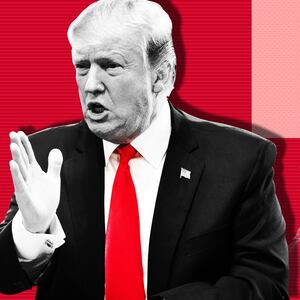INDIANAPOLIS—As new HIV cases burned like wildfire through rural Indiana in early 2015, then-Gov. Mike Pence went home to pray about a decision that challenged his long-held beliefs.
Federal and state health officials had for months pushed Pence to issue an executive order to allow needle exchanges in counties devastated by the intertwined scourges of opioid addiction and HIV infections.
But Pence opposed that solution. He believed, despite research to the contrary, that needle exchanges promoted illegal drug use.
ADVERTISEMENT
Nearly three months into the outbreak, Pence, under mounting pressure, told aides on March 23, 2015 that he would pray about his decision that night at the governor’s mansion. Three days later, Pence authorized Indiana’s first needle exchange program in Scott County, where more than 200 people in a community of fewer than 24,000 had been diagnosed with HIV.
As President Donald Trump prepares to announce during tonight’s State of the Union Address an initiative to stop HIV transmissions in the U.S. by 2030, there is ample reason to regard the effort with skepticism. Trump has proposed budgets that would dramatically slash funding for HIV/AIDS research and prevention. He's moved to slash global programs and scale down those at home, including the Ryan White AIDS Education and Training Centers and Ryan White Special Projects of National Significance. His administration has made it easier for health care providers to discriminate on matters of sexual orientation and they've overseen a dramatic fall in the rate of the insured.
And then there is Pence, whose presence near the top of the administration serves as a reminder to those who work in HIV prevention and research of what public officials should absolutely not do in the midst of a health emergency.
“We were first made aware that we had an HIV infection rate in rural Indiana exceeding New York City’s rate in early January of 2015,” former state Rep. Christina Hale (D-Indianapolis) said. “Under Indiana law, it was illegal for a person to own needles without a prescription. Federal, state and local officials pressed Pence to act. But near the end of the session in late March, we still didn’t have a bill that the governor would sign.”
Pence‘s executive order allowed for distribution of needles only in Scott County. The governor signaled his support for legislation requiring other counties to prove to the state a public health need before they could open needle exchanges.
Hale, the Democratic nominee for lieutenant governor in 2016, said the county-by-county approach created two problems. First, it blocked officials from setting up needle exchanges as a preventative step to get ahead of local outbreaks. Second, it created a stigma for counties that did show a public health need.
“Not many legislators were happy with the bill,” Hale said. “But the threat of a veto by the governor loomed. The county-by-county approach, instead of a statewide needle exchange, was the compromise that allowed the bill to pass.”
Hale believes one other concern drove Pence’s slow response to the crisis.
Health professionals say that promotion of condom use is critical to reduce the spread of HIV. But just as he opposed needle exchanges, Pence has moral objections to government distribution of condoms.
Days after he approved the needle exchange in Scott County, Pence stepped into a controversy that would define his only term as Indiana’s governor when he signed the Religious Freedom Restoration Act. The new law blocked local ordinances that protected LGBTQ citizens and others from discrimination. After a national outcry, Pence reluctantly signed an amended law that kept local human rights ordinances intact.
About 40,000 people, according to the Centers for Disease Control, are infected with HIV each year in the U.S. Nearly two-thirds are gay or bisexual men.
Two of Pence’s allies from Indiana will play key roles in the administration’s initiative. Health and Human Services Secretary Alex Azar, a former executive of Indianapolis-based Eli Lilly and Co., and U.S. Surgeon General Jerome Adams, Indiana’s public health commissioner at the time of the Scott County outbreak, owe their current jobs at least in part to Pence’s influence.
For the new HIV program to work, Trump’s team will have to embrace condom distribution and needle exchanges. They’ll also have to dispel distrust within the LGBTQ community.
Mike Pence will have much more praying to do.
Tim Swarens is a former opinion editor and columnist with the Indianapolis Star.







